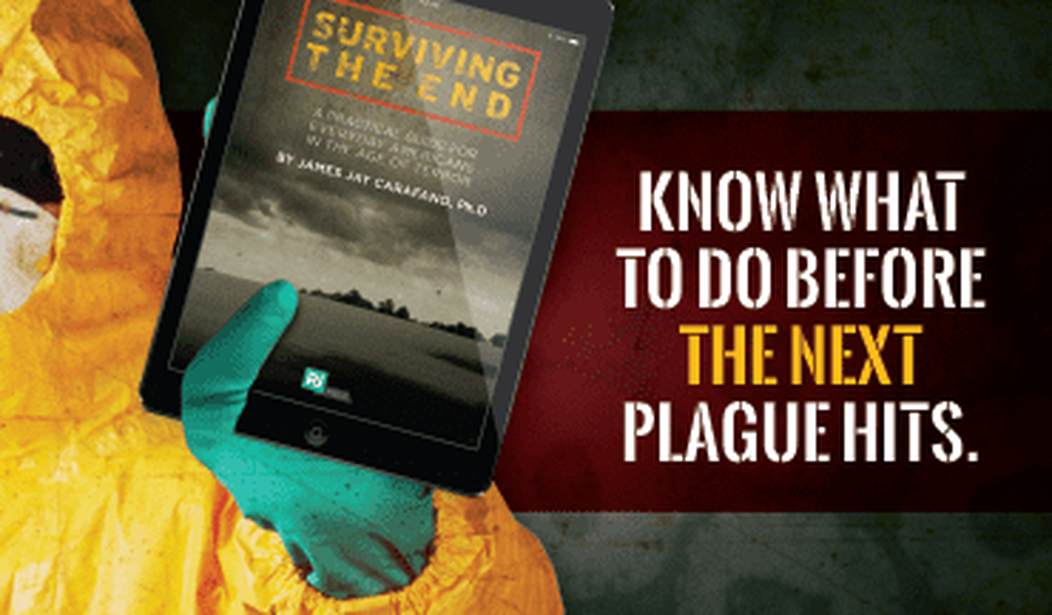The spread of deadly diseases is a scary and inevitable fact of life. The worst episode in modern times — the influenza pandemic of 1918-1919 — killed up to 50 million people. More Americans died of the “Spanish flu” than in the battles of World War I.
Although nowhere near as deadly, there have been plenty of health scares since then. They include the swine flu in 1976 and 2009, the 2003 outbreak of severe acute respiratory syndrome, and the Ebola epidemic of 2014. All of these episodes point to the value of preparing for the worst.
“We can’t sit around and act like lemmings,” says Jay Carafano, a Heritage Foundation national security scholar, and an expert in survival planning. “On the other hand, if we run around like an extra in Outbreak, we won’t serve ourselves or our families very well. Citizens and communities have to take a proactive and constructive role in ensuring their own survival.”
Carafano shares his advice for surviving a plague in his e-book Surviving the End: A Practical Guide for Everyday Americans in the Age of Terror. Below, find his top tips:

You can’t survive a health threat if you don’t realize it exists or don’t understand it, but you also can’t trust everything you hear amidst a panic.
Good risk communications have three components: 1) They identify a real danger; 2) they explain the risk simply and clearly; and 3) people know how to act after getting the details.
Hold community leaders accountable before an emergency to make sure their communications meet those standards. And if a threat emerges, seek information from trusted sources, like a family patriarch or preacher.
Adopt healthy practices
Some pandemics occur because viruses are easily transmitted and mutate. Lower the risk of catching them by getting vaccines, such as the annual flu vaccine, and washing your hands frequently. Help stop the spread by avoiding sick people, staying home from school or work when sick, and containing coughs and sneezes. Encourage local response plans to outbreaks because they will be the best and most effective.
Educate others about the threat
The “worried well” — people who seek care when they don’t need it — distract emergency responders and medical personnel, and they drain resources from actual needs.
Promote responsible medical knowledge and help others understand the risks to address this problem. Discussing the issues in a group setting can help.
Be aware of the government’s role
Get the Hollywood plotlines out of your mind. Government-ordered quarantines are unlikely. But “contact tracing” is a possibility. Public health officials may want to interview you if you have come in contact with someone who has a disease.
Other options include screening, social-distancing measures, and voluntary isolation, as occurred with some of the Ebola cases in the United States.
Avoid disaster scenes
Explosions and other incidents may be designed to spread disease through bioterrorism, which can spread organisms faster than — and trigger illnesses that are not as easily identifiable as — traditional plagues.
Shelter in place to avoid the risk of exposure, and add emergency contact numbers to your digital devices so you can call if you are exposed.
Visit Amazon.com to download the Kindle edition of Surviving the End: A Practical Guide for Everyday Americans in the Age of Terror for more tips on how to prepare for and get through the greatest threats to humanity.









Join the conversation as a VIP Member